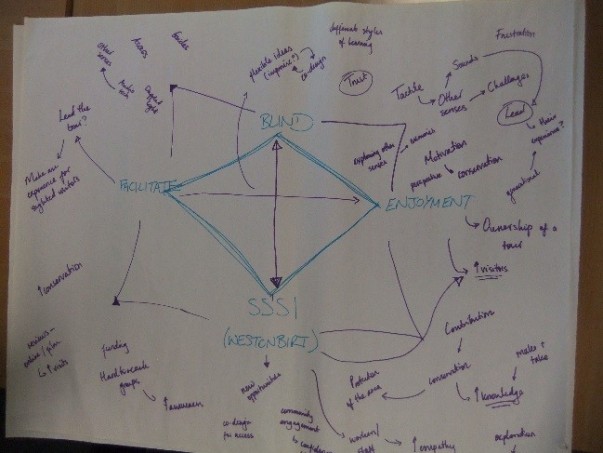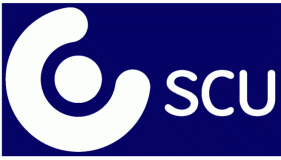Blog Archives
Postgraduate Science Communication students get stuck in on ‘Science in Public Spaces’
Emma Weitkamp & Erik Stengler
September saw the lecturing staff at the Science Communication Unit welcoming our new MSc Science Communication and PgCert Practical Science Communication students to UWE and Bristol. It also sees the start of our refreshed programme offering, which includes significant changes and updates to two of our optional modules: Science in Public Spaces and Science on Air and On Screen.
The first three-day block of Science in Public Spaces (SiPS) marks the start of a diverse syllabus that seeks to draw together themes around face-to-face communication, whether that takes place in a what we might think of as traditional science communication spaces: museums, science centres and festivals or less conventional spaces, such as science comedy, theatre or guided trails. Teaching is pretty intense, so from Thursday, 29th September to Saturday, 1st October, students got stuck into topics ranging from the role of experiments and gadgets to inclusion and diversity.
Practical science fair
Thursday, 29th September saw the 13 SiPS students matched with researchers from the Faculty of Health and Applied Sciences. Students were introduced to cutting edge research and have been challenged to think about how this could be communicated to the public in a science fair setting. Each student will work with their researcher to create a hands-on activity which they will have the opportunity to deliver to the public at a science fair to be held during a University Open Day in the spring.
Towards the end of the three days a session on creativity generated intense discussion about how we might judge what creativity is through to practical techniques and tips we might use to stimulate creative thinking. The session included a word diamond (McFadzean, 2000), where groups considered how you might foster engagement and enjoyment amongst blind visitors to the Grand Canyon, how blind visitors could be involved in creating a sensory trail (for sighted people) at an arboretum or how to enable a local community to be involved in decision making around land use that involved ecosystem services trade-offs. Challenging topics that draw on learning from earlier in the week.

After a final session on connecting with audiences, students (and staff) were looking a little tired; three days of lectures, seminars and workshops is exhausting. We hope students left feeling challenged, excited and ready to start exploring this new world of science communication and public engagement and that they find ways to connect their studies with events and activities they enjoy in their leisure time – though that might not apply to the seminar reading!
Science in Public Spaces got off to an excellent start, thanks to the students for their engaged and thoughtful contributions in class. Up next is the Writing Science module, where Andy Ridgway, Emma Weitkamp and a host of visiting specialists will be introducing students to a wide range of journalistic techniques and theories. Then it will be the turn of the new Science on Air and on Screen where Malcolm Love will introduce students to techniques for broadcasting science whether on radio, TV or through the range of digital platforms now open to science communicators. Looks to be an exciting year!
McFadzean, E. (2000) Techniques to enhance creativity. Team Performance Management: An International Journal, 6 (3/4) pp. 62 – 72
MSc Broadcasting Science students in action!
As part of our MSc in Science Communication students have the option to choose a Broadcasting Science module (‘Science on Air and On Screen’ for 2016/17 onwards). The module enables students to build their radio, TV and digital media skills by critically exploring the role of broadcast media in the communication of science. Students make an ‘as live’ radio magazine programme about science, and a short film. On many occasions these films were selected to be shown on the Big Screen on Millennium Square, Bristol, during the Festival of Nature.
The module is taught by Erik Stengler , Senior Lecturer in Science Communication and Malcolm Love , Associate Lecturer in Science Communication, and includes the use of facilities at the BBC Bristol and the production company Films@59.
You can watch the impressive short films made by our recent MSc students below.
2013
2014
2015
2016
The Science Communication Unit at UWE Bristol is renowned for its innovative and diverse range of national and international activities designed to engage the public with science. Our MSc Science Communication course is an excellent opportunity to benefit from the Unit’s expertise, resources and contacts.
As well as drawing on the academic and practical experience of staff within the Science Communication Unit, our programme gives students an opportunity to meet a range of visiting lecturers and benefit from their practical experience. This also provides an excellent networking opportunity for students interested in developing contacts among science communication practitioners. The course combines a solid theoretical background with practical skill development, and has excellent links with the sectors and industries it informs.
If you are interested in finding out more about our Science Communication Masters or Postgraduate Certificate, please visit our website.









